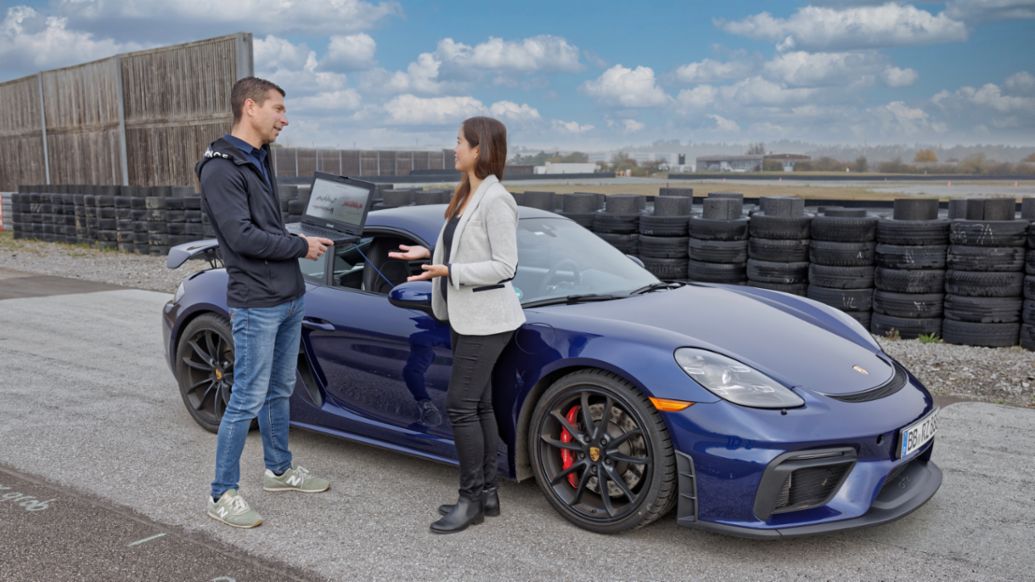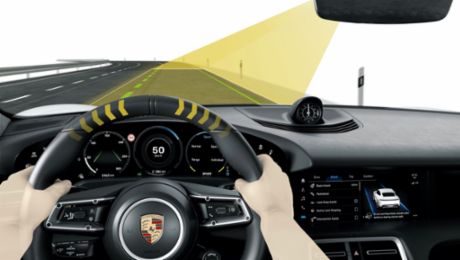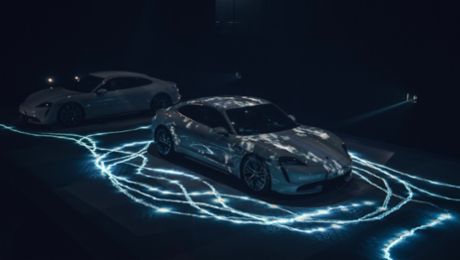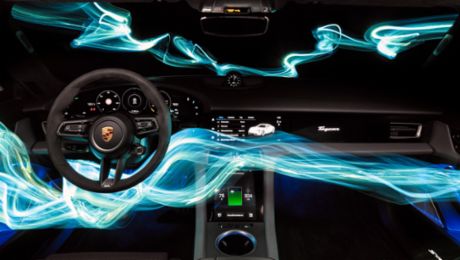AI gives computers the ability to analyze problems and solve them automatically—much like a human being. This potential is being exploited in powertrain development, both in the field of e-mobility and in the internal combustion engine as a traditional domain of mechanical engineering.
Predicting oil foaming
In the development of traditional combustion engines, for example, AI solves the problem of predicting the gas content in the engine oil. Since high gas content leads to oil foaming and thus to reduced lubricity, the oil system must be designed for the lowest possible gas content. However, measurements can hardly be carried out in the vehicle with the engine running. A new AI process from Porsche now provides reliable forecasts of the gas content in the engine oil.

“In the process, we were able to keep the computing capacity required for the AI algorithm so low that we can easily integrate it into the engine development process,” says development engineer Hong Truc Jung, who is responsible for AI tools in the powertrain at Porsche. “During standard bench tests, it runs continuously and provides us with the desired data in the process.” The first engine for which Porsche applied the new AI process was the six-cylinder boxer engine () for the Porsche Cayman GT4.
Battery state analysis for electric vehicles
One AI application from the Porsche technology subsidiary Porsche Engineering is determining the aging behavior of the lithium-ion battery, which drivers of electric vehicles are already using to make predictions about battery range while driving.

The AI algorithm uses the internal resistance of the battery to infer its aging. Among other things, it takes into account influences such as temperature and state of charge, as well as the results of long-term and fleet tests. In the vehicle, the AI adapts to the driver’s user profile so that the prediction becomes increasingly precise.
Porsche Engineering Reinforcement Learning (PERL)
Porsche Engineering has developed a particularly flexible development methodology with high potential for a wide variety of use cases based on the AI method deep reinforcement learning. “Our PERL methodology, short for Porsche Engineering Reinforcement Learning, goes beyond the specific solution of individual tasks, because it understands systemic relationships and learns to make strategic decisions,” explains Matthias Bach, Senior Manager of Engine Application and Mechanics at Porsche Engineering.
Since the neural networks of the AI algorithm can vary several parameters at the same time, including in combination with each other, and predict the resulting effects, PERL is ideal for complex engine application tasks and many other areas of vehicle development. “With PERL, we can reduce development time while achieving better application results than would be possible with conventional methods,” adds Bach. The method is currently undergoing practical testing in drive development and will also be used in other areas such as the complete vehicle, chassis, and electrics/electronics at Porsche Engineering in the medium term.
About Porsche Engineering
Porsche Engineering Group GmbH is an international technology partner to the automotive industry. The subsidiary of Dr. Ing. h.c. F. Porsche AG is developing the intelligent and connected vehicle of the future for its customers—including functions and software. Some 1,500 engineers and software developers are dedicated to the latest technologies, for example in the fields of highly automated driving functions, e-mobility and high-voltage systems, connectivity and artificial intelligence. They are carrying the tradition of Ferdinand Porsche’s design office, founded in 1931, into the future and developing the digital vehicle technologies of tomorrow. In doing so, they combine in-depth vehicle expertise with digital and software expertise.








